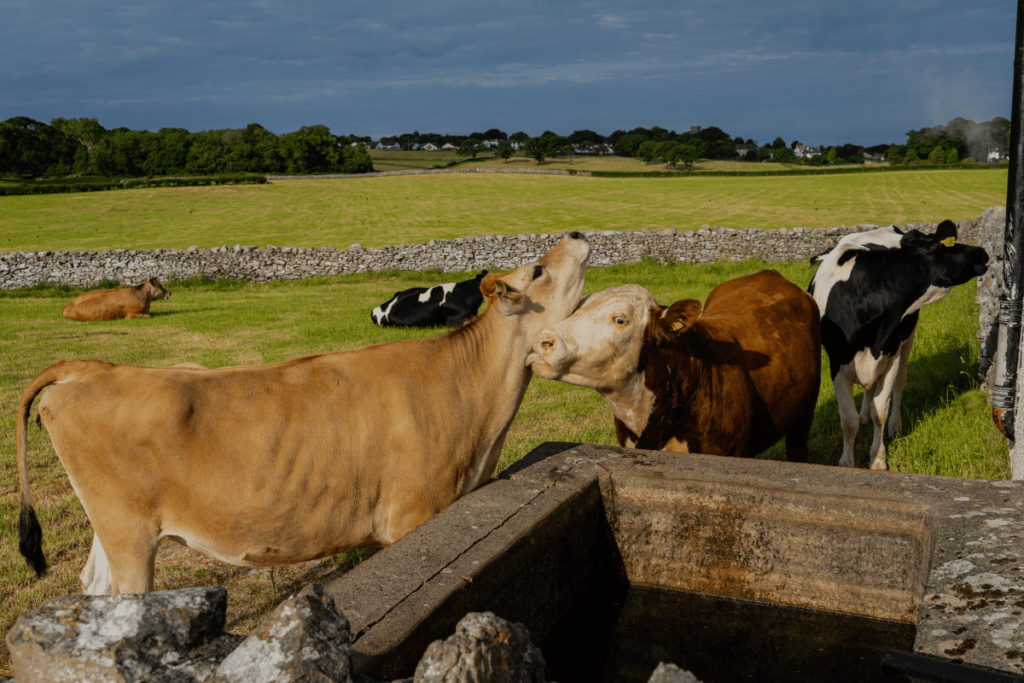Sustainable cattle farming includes a range of practices designed to reduce environmental effects while maintaining animal and land welfare.
Grass systems that include several types of legumes and grass enhance soil fertility and give cattle a well-rounded diet. Effective nutrient and water management contributes to resource conservation and reduces pollution.
Low-stress handling methods lessen animal uneasiness and injuries, while the operation’s overall sustainability is improved by genetic selection for endurance and efficiency.
Cattle farmers may help create a more ethically and environmentally conscious agriculture sector by adopting these practices.
The Basics of Sustainability
Sustainable cattle ranching aims to achieve a balance between the farm’s financial viability, animal welfare, and environmental requirements.
Sustainable cattle ranching aims to achieve a balance between the farm’s financial viability, animal welfare, and environmental requirements.
Good Animal Health:
Keeping animals healthy lowers emissions, boosts output, and improves the efficiency of the production process.
Modifying the Nutrient Mix:
Reducing greenhouse gas emissions and methane production can be achieved by modifying the dietary mix. For instance, including certain lipids in calf feed can dramatically reduce emissions of methane.
New Methane Reduction Products:
By focusing on ruminant methane reduction, novel supplements, and vaccines can reduce emissions associated with cattle farming.
Agricultural Regeneration:
To produce food more sustainably, regenerative agriculture aims to restore the natural resources used in agriculture. It includes techniques like pasture farming, which permits animals to serve as organic fertilizers and aids in the soil’s ability to retain carbon dioxide.
Sustainable Pasture Management:
This approach can help dairy farmers feed their animals well, lower livestock emissions, increase soil carbon levels, lessen the consequences of climate change, and improve farm profitability and resilience.
The Way Ahead
Demand for sustainably raised beef is rising as customers become more aware of the ethical and environmental effects of the foods they choose. Sustainable cattle farming not only protects the environment and the health of their animals, but it also positions them as stewards of an improved future for agriculture.
Cattle ranchers may lead the way toward a more sustainable future for agriculture by emphasizing techniques like genetic selection, low-stress handling, varied feed systems, water and fertilizer management, rotational grazing, and energy efficient.
In summary
Cattle farming plays a significant role in the complex web of sustainable agriculture, presenting both opportunities and difficulties for innovation and stewardship.

